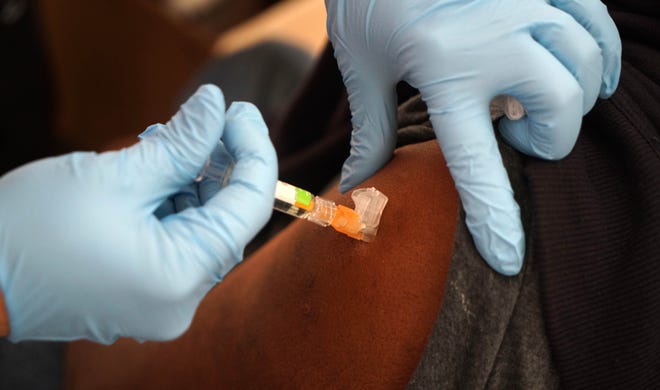To combat an early surge in flu and respiratory syncytial virus cases in children, the Delaware Healthcare Association is asking nurses with inpatient pediatric experience to help lessen the already “severe strain” on local hospitals.
The message was sent to all registered nurses in Delaware by the Division of Professional Regulation on Wednesday afternoon.
“We’re working to be proactive,” said Delaware Healthcare Association Vice President Megan Williams.
Between Oct. 23 and Oct. 29, the Delaware Division of Health and Social Services reported 172 official flu cases — over half of the total reported in the state so far this flu season. Four of the 172 confirmed flu cases led to hospitalizations.
In that same period, 126 people tested positive for RSV, which is about a third of the total confirmed RSV cases this season.
BACKGROUND:Why it’s difficult to track how RSV is impacting Delaware and what that means for winter
Williams explained that the flu and RSV typically don’t peak until late winter; so seeing such high cases as early as October may be a sign that an even worse winter is to come. By having more nurses on staff, hospitals will have “breathing room” to best deal with whatever lies ahead.
Similar requests for assistance have been sent out throughout the COVID-19 pandemic, most recently during January’s omicron spike. However, this call for help has a “new level of nuance,” Williams said, as inpatient pediatrics is a more specialized field.
“This is new territory from an epidemiological standpoint,” Williams said.
What are the symptoms to look for?
Flu symptoms are similar to those of COVID-19, so experts recommend taking a COVID-19 test before going to the hospital.
WHAT TO KNOW:With COVID, flu and RSV in Delaware, here’s when you should go to the emergency department

RSV symptoms are also similar, but parents — especially those of kids under 2 years old — should be on the lookout for decreased appetite, wheezing and trouble breathing in their children.
How to prevent getting sick
To combat the spread of these respiratory viruses, the Division of Public Health made the following recommendations:
- Get vaccinated for COVID-19, the flu, and other illnesses for which vaccines are available
- Cover coughs and sneezes with a tissue, and dispose of the tissue in a wastebasket afterward
- Wash hands frequently with soap and water or use alcohol-based hand sanitizers
- Avoid touching your eyes, nose or mouth
- Sanitize commonly touched surfaces more frequently during the fall and winter
- Wear a mask when cases are high or if you are at higher risk for respiratory illness
Send story tips or ideas to Hannah Edelman at hedelman@delawareonline.com. For more reporting, follow them on Twitter at @h_edelman.